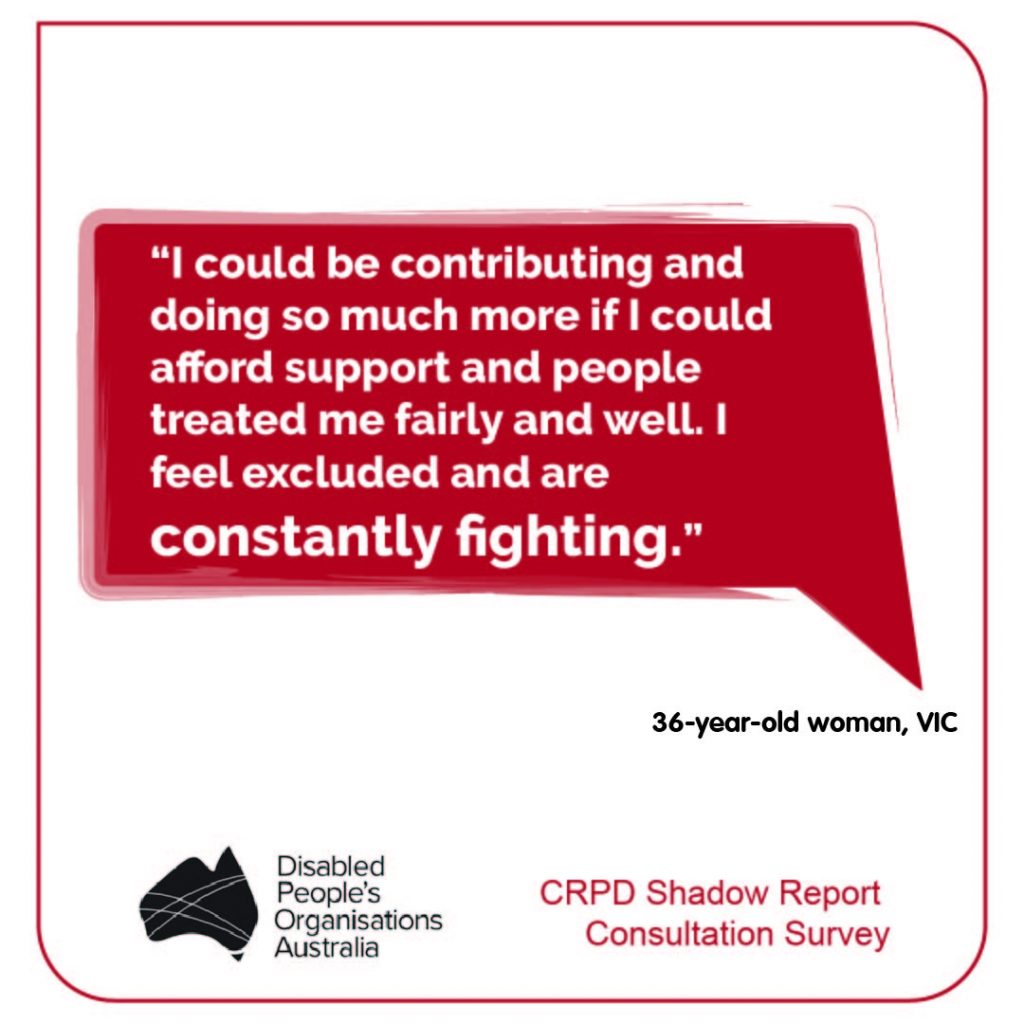We asked people with disability about their rights in an online survey to help us prepare the Civil Society Shadow Report to the United Nations Committee on the Rights of Persons with Disabilities. Here’s what we found out.
Key statistics
- A majority of survey respondents are unable to access the support they need (61%)
- 44% of respondents do not have access to the healthcare they need
- A majority of survey respondents believe that healthcare workers do not understand their needs (55%)
- 76.5% of respondents have experienced discrimination because of their disability
- 61% of respondents cannot afford to cover their basic needs on their current income or support
- One third of respondents have experienced violence or abuse because of their disability (33%)
- A majority of respondents (61%) do not have access to all the support services they need. Of particular concern is a majority of respondents (60%) who cannot afford the support they need.
- A majority of respondents (62.5%) know where to find information about Government services, but concerningly 57% of respondents do not find this information accessible or easy to understand.
- A majority of respondents (51%) have difficulty moving between states and countries because of their disability.
- 39% of respondents are able to access both public and private spaces that they want.
- 27% of respondents believe they have the same education opportunities and just 9% of respondents believe they have the same employment opportunities as other people.
- 82.5% of respondents think that the general public’s understanding of disability is not good.
- The majority of respondents (41%) don’t feel that the legal and justice system are trained properly to support people with disability, and just 9% of respondents believe they have an equitable opportunity to participate in the justice system as people without disability.
- The majority of survey respondents are limited in their recreation activities with 52% of respondents stating they don’t have access to social activities in the same way as people without disability, 64.5% cannot go on holidays when they want and 63% can not participate in the sports they want to.
- While 42% of respondents have access to information about how to prepare for natural disasters, just 11% of respondents believe that disaster response plans meet the needs of people with disability.
Intersectional spotlight
- Most survey respondents were women (72%). 3% of respondents selected their gender as either nonbinary or ‘other’. 3% identified as Aboriginal and Torres Strait Islander people, and 12% migrants or refugees.
- 50% of respondents with migrant backgrounds, 60% of Aboriginal and Torres Strait Islander people, and 38% of women said they felt they had been discriminated against for their race or gender, compared to 39% of all respondents.
- We did not specifically ask about LGBTIQ experience, but several people volunteered that information in free text fields, including transgender and intersex respondents. As there are likely to be unidentified LGBTIQ respondents, this segment of the data isn’t statistically useful – something to rectify next time we do a survey.
Personal comments
Each question on the survey offered a text field for respondents who wanted to explain more about their experience. We’d like to thank everyone who took the time to do so. The Shadow Report summarises these issues in general terms, but it’s important to hear from people with disability in their own words, too.
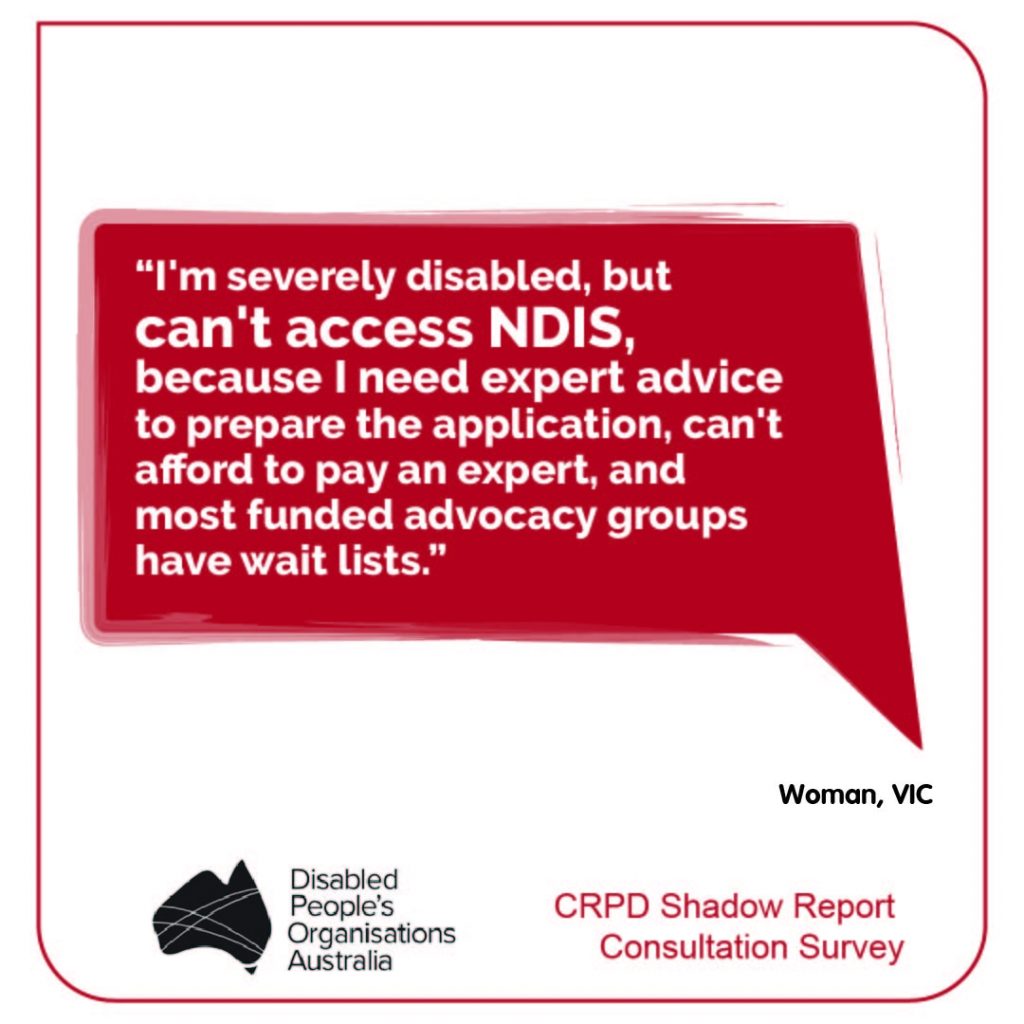
Most respondents felt they needed help applying for the NDIS because it is a complicated process, and not enough resources are available for everyone who should qualify for the scheme to be able to apply.
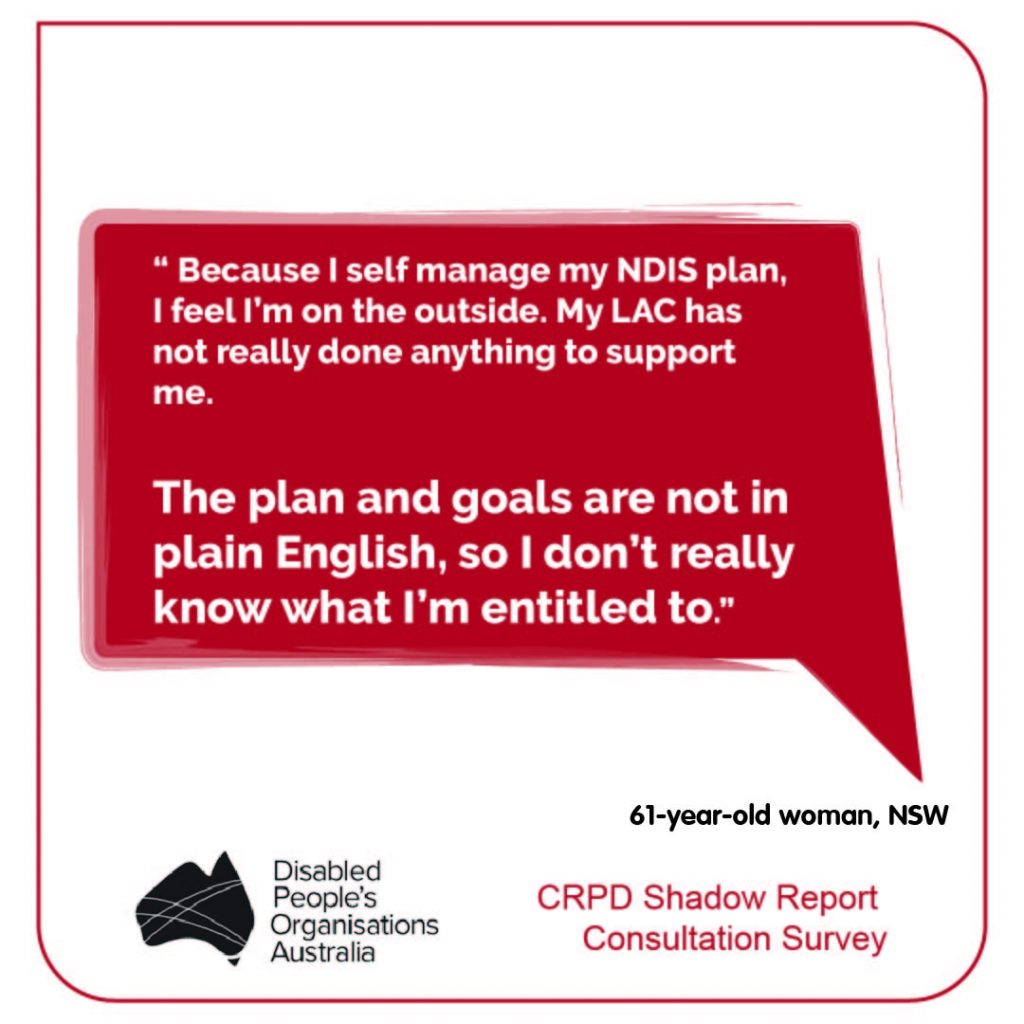
More generally, there was a pervasive theme of neglect by bureaucracy, with a large amount of people frustrated by issues such as hard-to-understand paperwork, different departments passing the buck back and forth, and unrealistic eligibility criteria for various supports and equipment, both in the NDIS and other services.
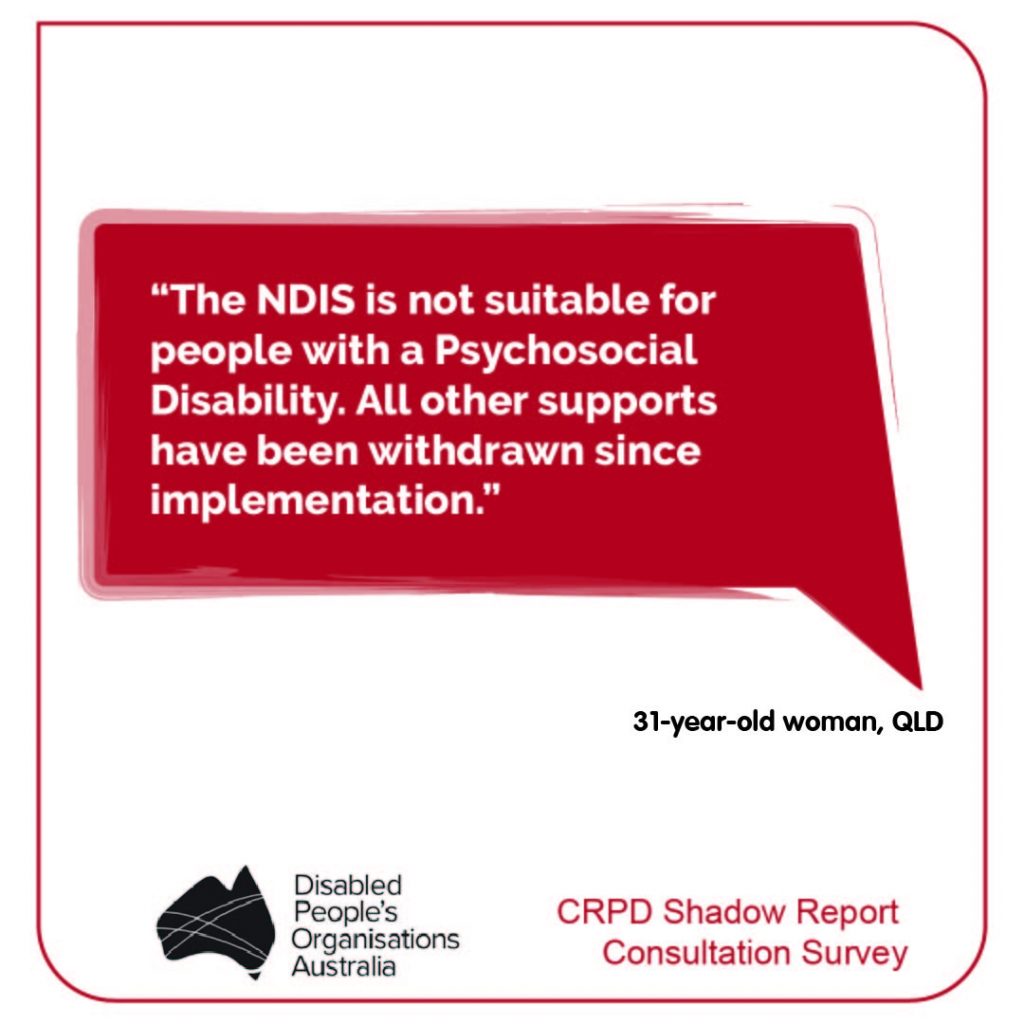
We heard from many people about the lack or inaccessibility of disability services and support for bedbound or housebound people, people with sleep-cycle differences, and others whose impairments make it difficult to keep regular business hours appointments.
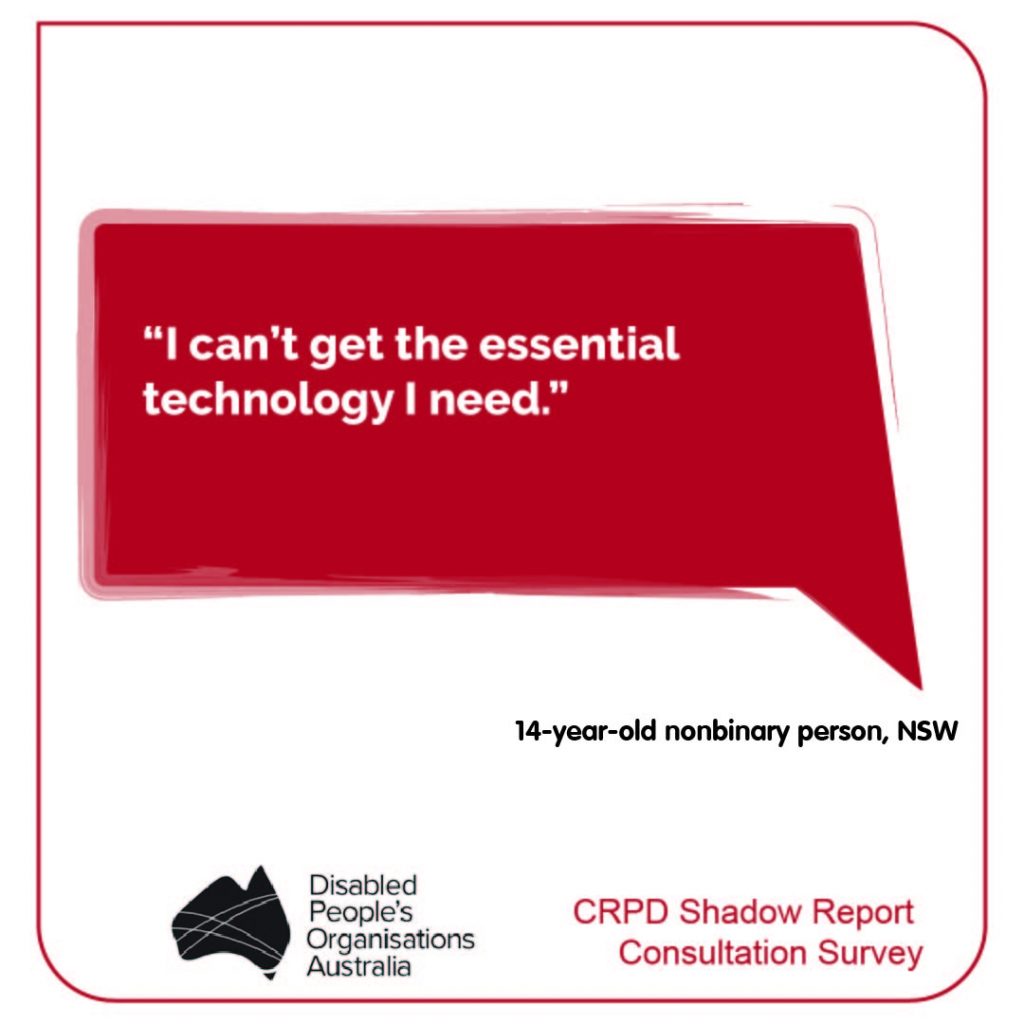
We also heard about a number of barriers preventing people with disability from realising our right to equal access to the justice system, including inaccessible buildings and discrimination. While some respondents have a positive relationship with police, many reported poor treatment in the past and fear of how they would be treated if they asked for help in the future.
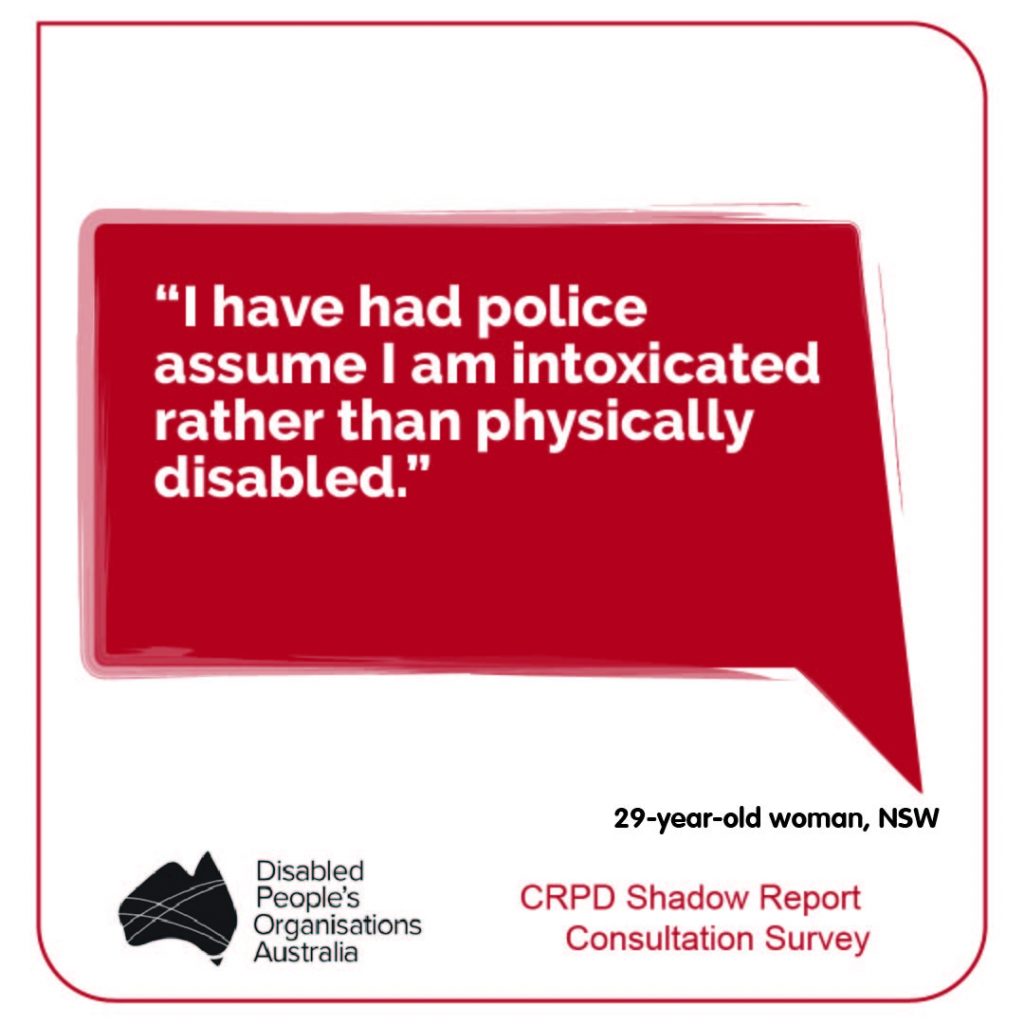
Respondents who are also members of other marginalised groups reported serious issues of combined discrimination, and told us that service providers have very little training or knowledge of the ways that disability intersects with different marginalised experiences.
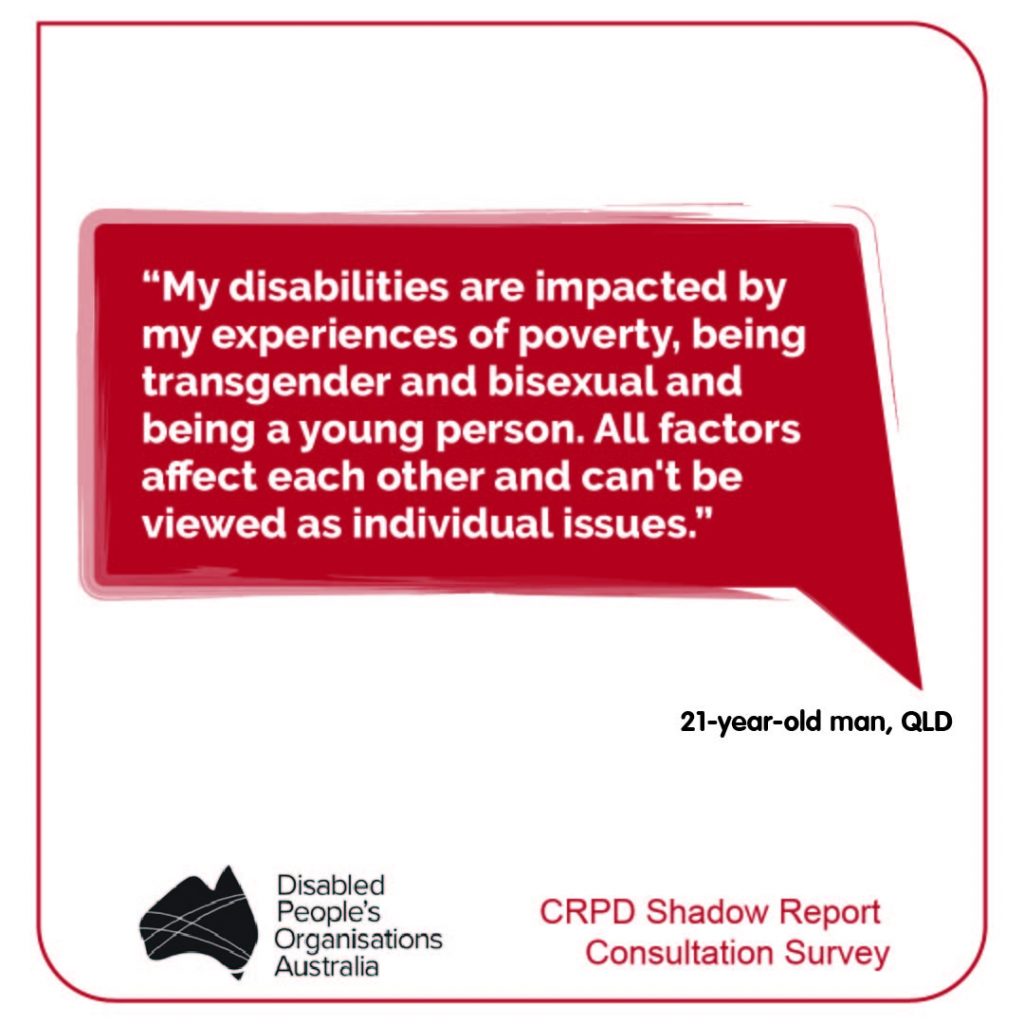
Several Aboriginal and Torres Strait Islander respondents talked about feeling like they are missing out on their culture because of their disability.
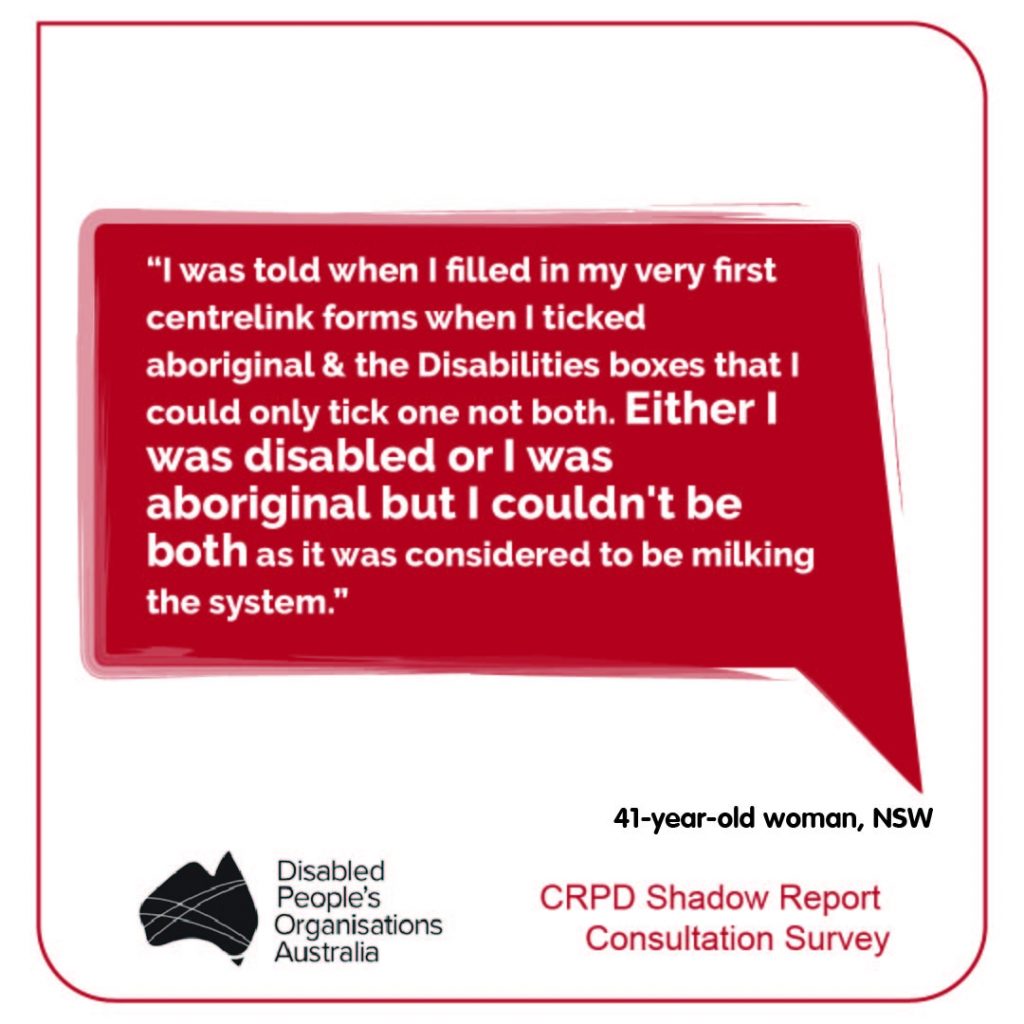
People with disability have the same right to a family life as everyone else, but a parent with disability is 10 times more likely than other parents to have a child removed from their care because of their disability. Several respondents, particularly but not exclusively Aboriginal women, said they are afraid to access disability supports in case their disability is later used by the State as an excuse to take away their children.
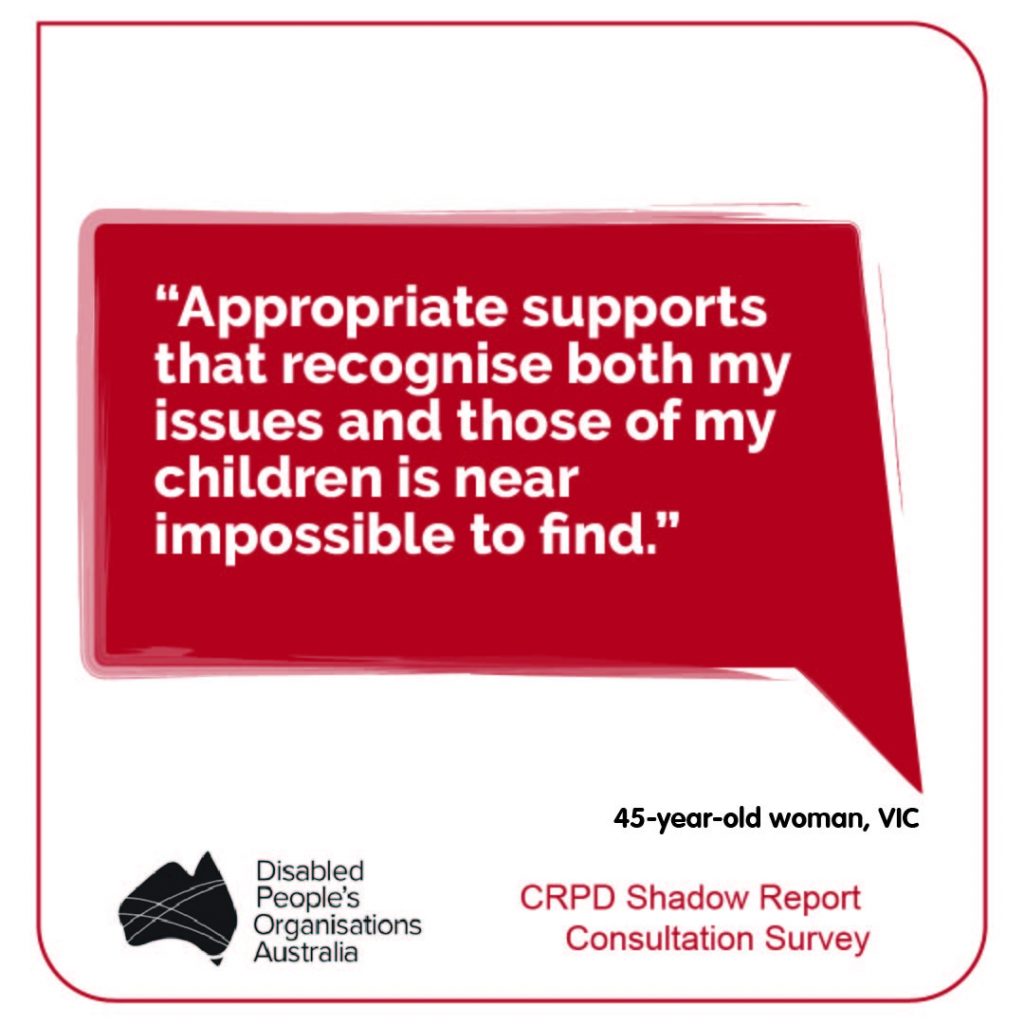
Meanwhile, 39 respondents were either children or parents responding on behalf of children.
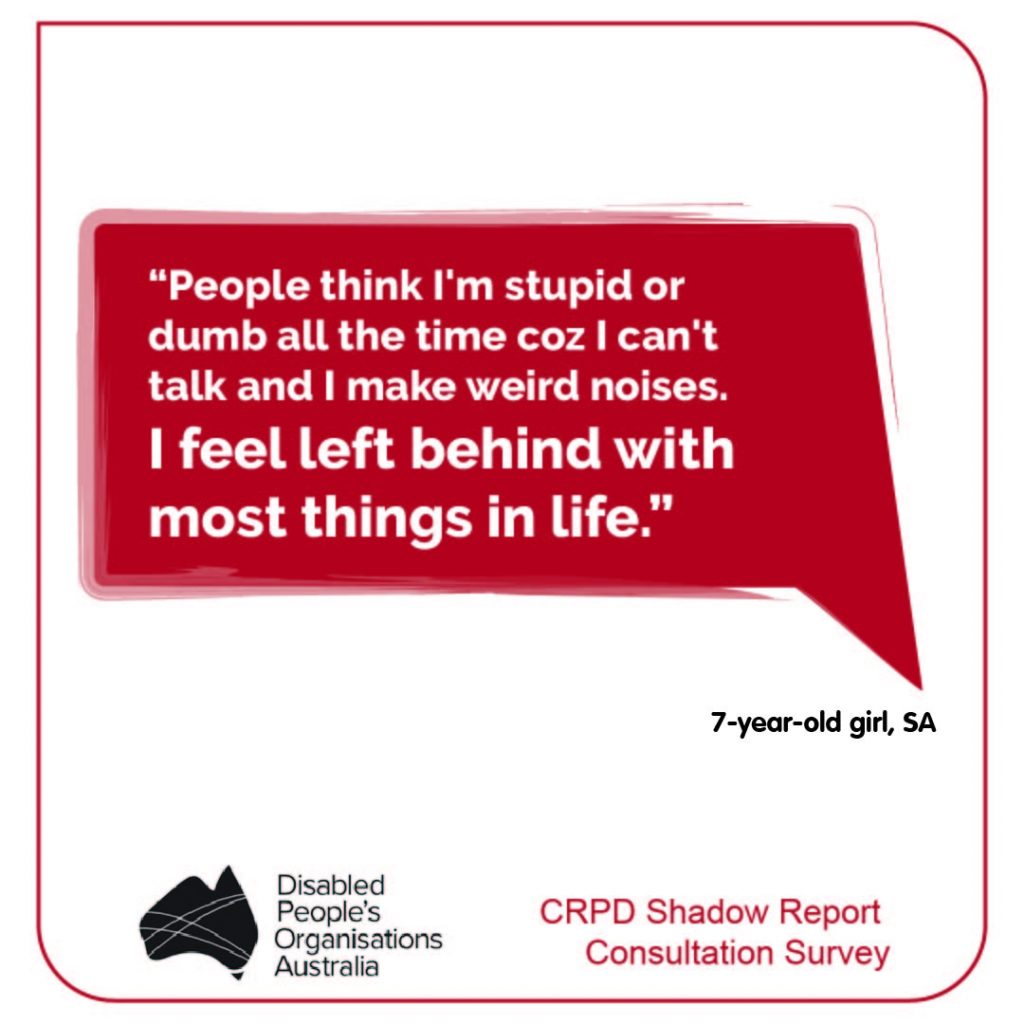
Their responses spoke of preventable isolation, bullying and segregation, as well as many financial and institutional barriers to their right to an education.
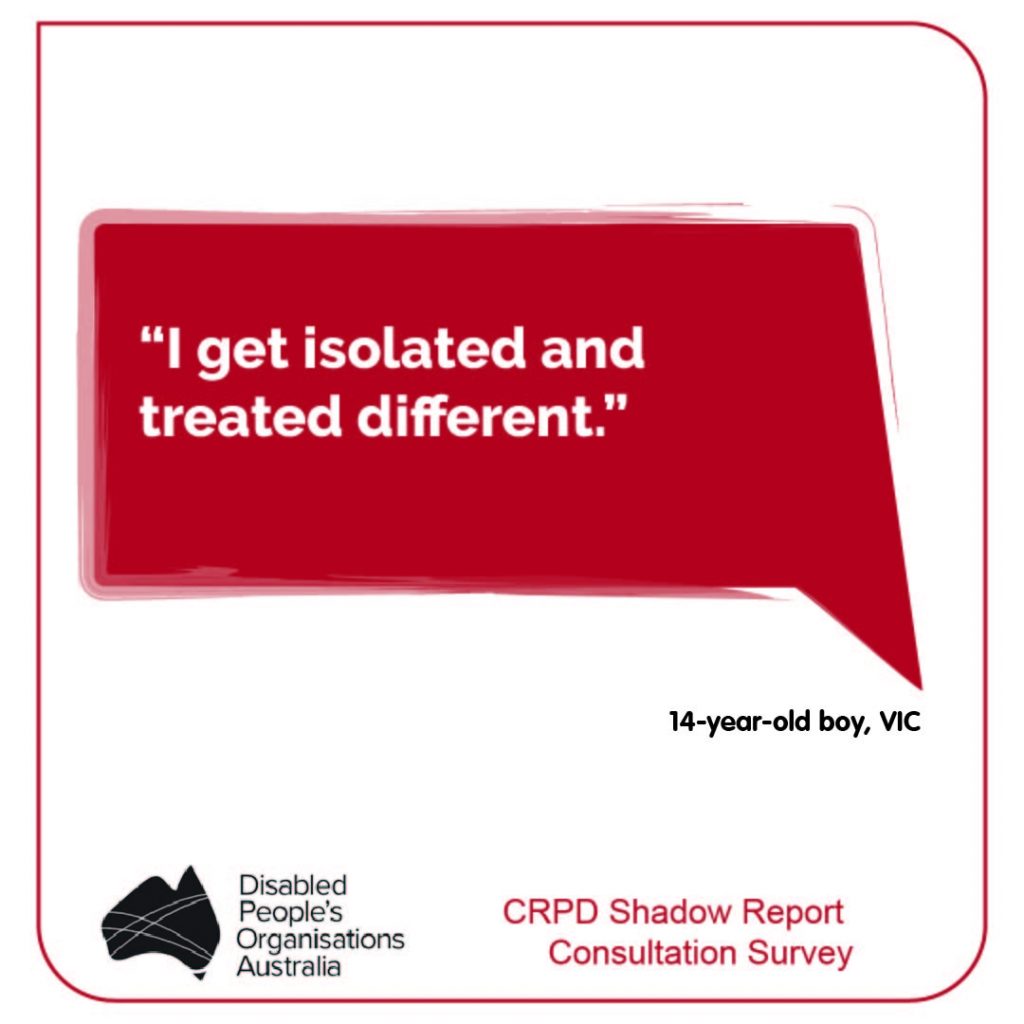
Nearly all respondents mentioned financial problems at some point. Between employment discrimination, limited affordable and accessible housing, and difficulty accessing the social safety net, poverty is a major source of stress and, frequently, increased impairment for people with disability.
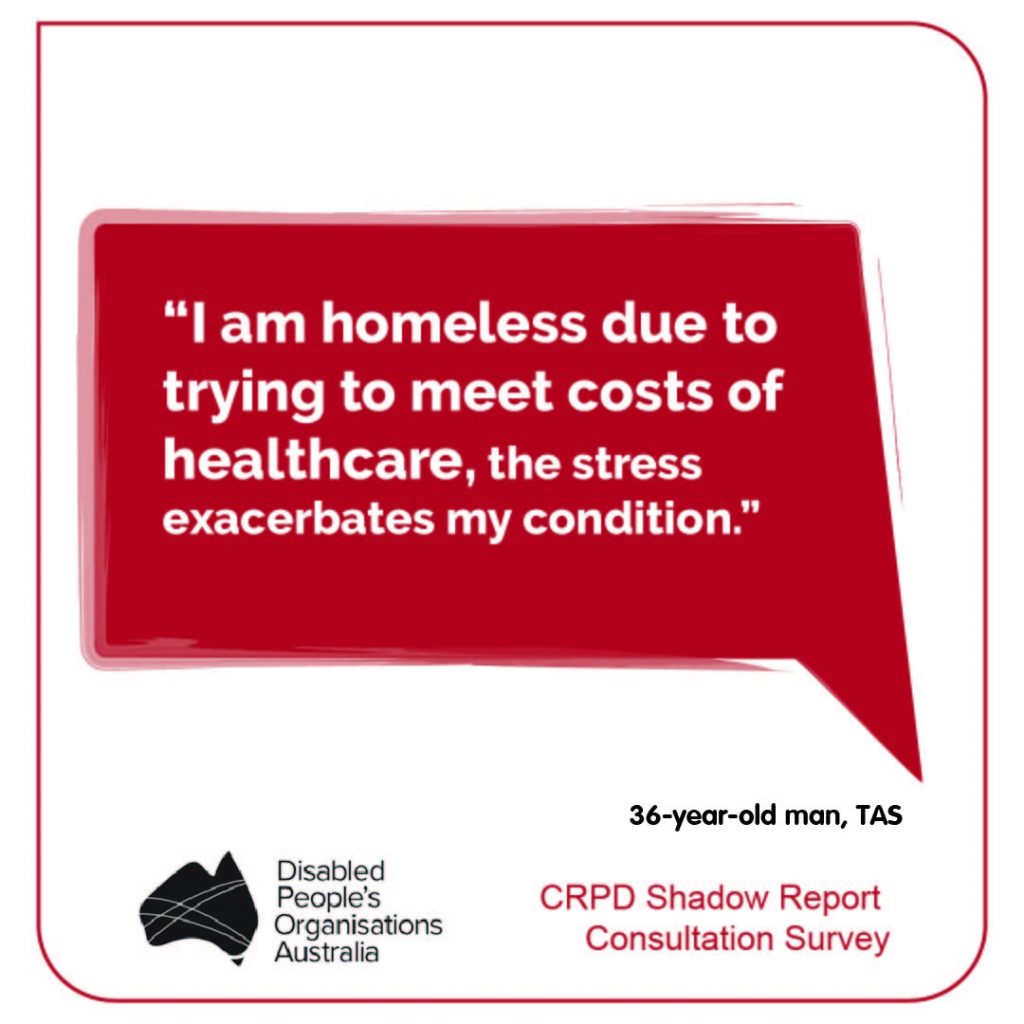
Find out more about disability and human rights in Australia, as well as our recommendations for how Australia can better comply with the Convention on the Rights of Persons with Disabilities in the Shadow Report. Click here and go to the bottom of the page to download Word or PDF versions of the report, including a Plain English version and translations into French and Spanish.
